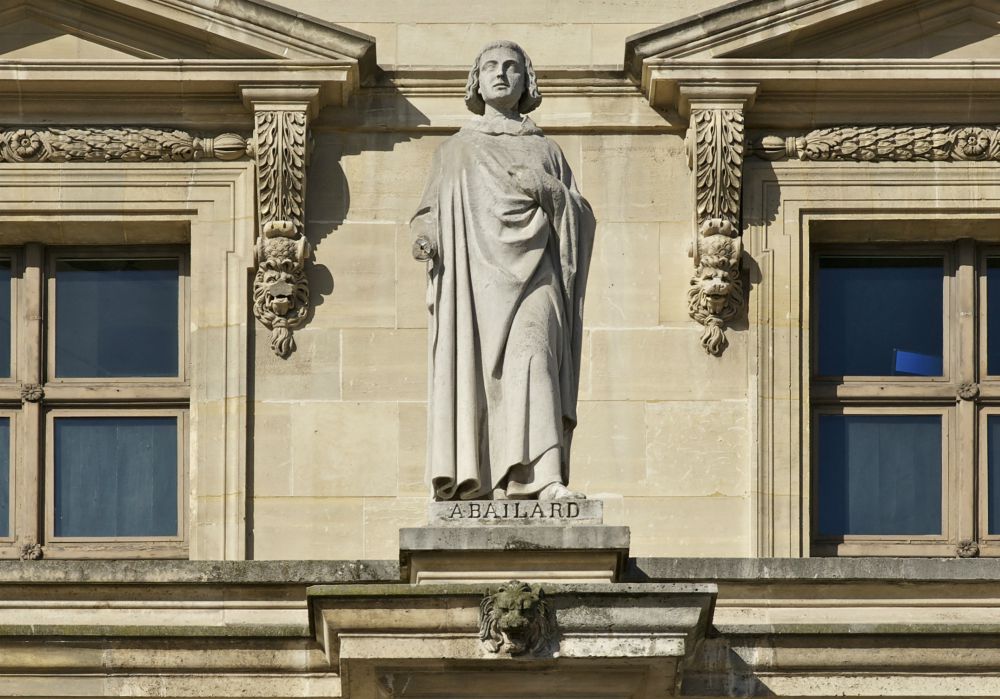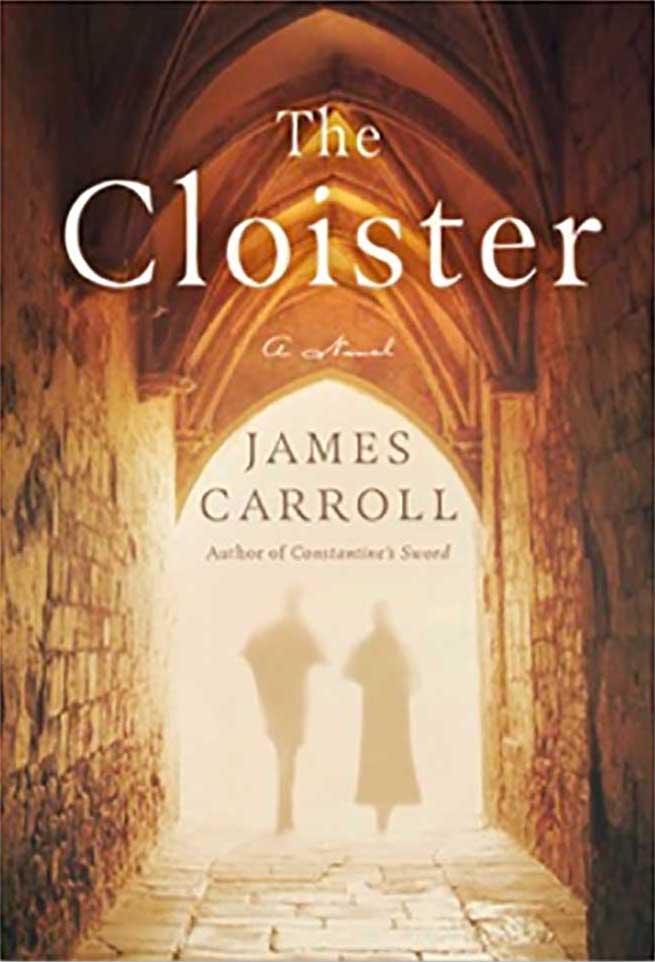
Statue of Peter Abelard by Jules Cavelier (circa 1853) on the facade of the Louvre Palace, in the Napoléon courtyard, Paris, France, pictured in 2012. (Wikimedia Commons/Jebulon)
I just finished reading James Carroll's new novel, The Cloister. I would recommend the book wholeheartedly.
One thing did surprise me a little. A major theme of the novel was the relationship between Catholics (or other Christians) and Jews. I thought Carroll had exhausted everything there was to say about Christians and Jews in his monumental non-fiction work, Constantine's Sword. At the level of human interaction, though, the novel brings issues to life that could not be addressed within a totally historical context.
What attracted me most about the novel, however, were the insights into the thinking of Peter Abelard (1079-1142). My own knowledge of the work of Abelard was pretty much non-existent. I remember one professor mentioning him as a great Catholic thinker, but one that we did not study because he was not in favor with the church.
Those aspects of Abelard's thinking referenced in the novel are enlightening. My reaction is that he could have written many of the documents of Vatican II. Maybe he did. He tackled many questions that the church had been grappling with, and he seemed to have important insights that were ignored for centuries.
He understood that God is a God of love and not judgement. The notion of extra Ecclesiam nulla salus was just not reasonable with a God of such love. Abelard dealt with the death of unbaptized babies and refused to believe they were condemned. He refused to believe that good people who were Jews or non-Christians could be summarily banished to eternal damnation.
If Carroll's book did anything for me, it was to drive me to find and read more of Abelard's work. He needs to be rehabilitated among Catholic thinkers and assume his rightful position in the hierarchy of Catholic thought.
Advertisement
Consider a few quotes from Abelard. At a time when the church had all the answers and was not open to question or dissent, Abelard said: "Nothing can be believed unless it is first understood; and that for anyone to preach to others that which either he has not understood nor have understood is absurd." Also, "The key to wisdom is … constant and frequent questioning."
Abelard saw our redemption as different from being an atonement for our sin. He said: "The purpose and cause of the incarnation was that he might illuminate the world by his wisdom and excite it to the love of himself."
He also said, "Our redemption through the suffering of Christ is that deeper love within us which . . . secures for us the true liberty of the children of God, in order that we might do all things out of love rather than out of fear."

Read the April NCR interview with James Carroll here: "Story of the church and the West could have gone another way."
Abelard also had a different view of original sin. He felt that we were influenced by the sin of Adam, but we had no sin, because we couldn't be held responsible for the sin of another. It was only when we acted on our weakness that we would be guilty of actual sin.
Finally, Abelard had a much more tolerant view of Judaism than his contemporaries. He was seriously opposed to the oppressive restrictions on what Jews were allowed to do — namely, limiting them to mercantile and money lending activities. He also said Jews had less guilt for killing Jesus than they would have if they had been merciful to him by going against their beliefs.
The tragic story of Peter Abelard highlights many of the dismal realities which are part of the history of our church. We can only hope that we can begin to bring a new and better church into being. A new interest in the thinking of Peter Abelard among Catholics might be a good place to start.
[Pat Perriello is a retired educator from the Baltimore City Public Schools who served as the coordinator of Guidance and Counseling Services; he was also an associate professor at Johns Hopkins University.]








